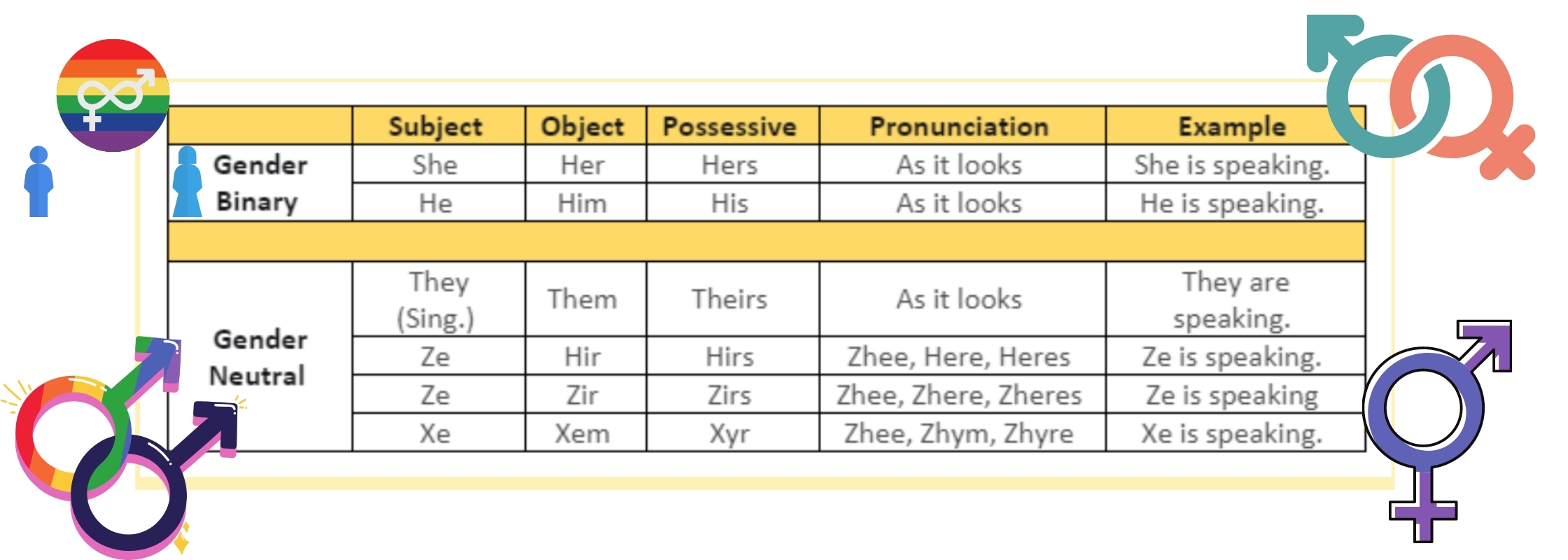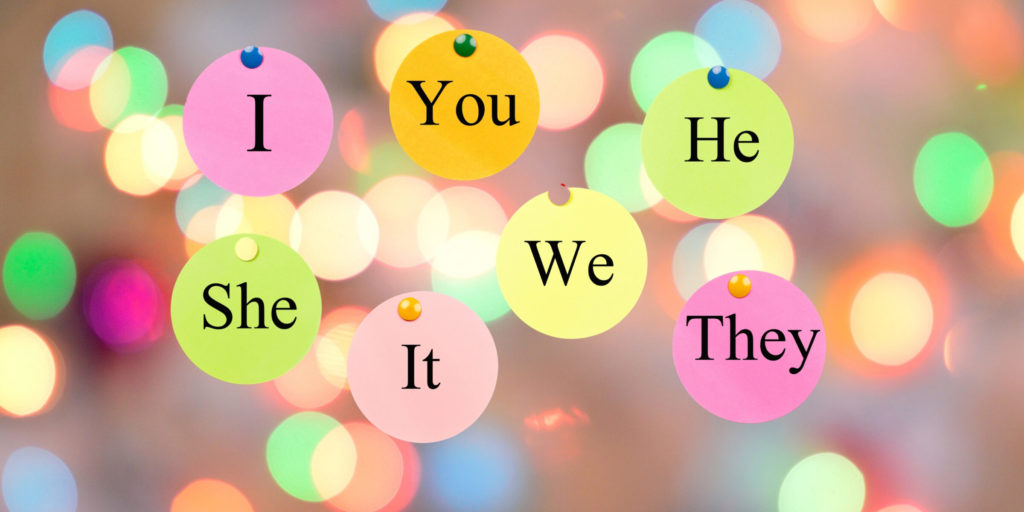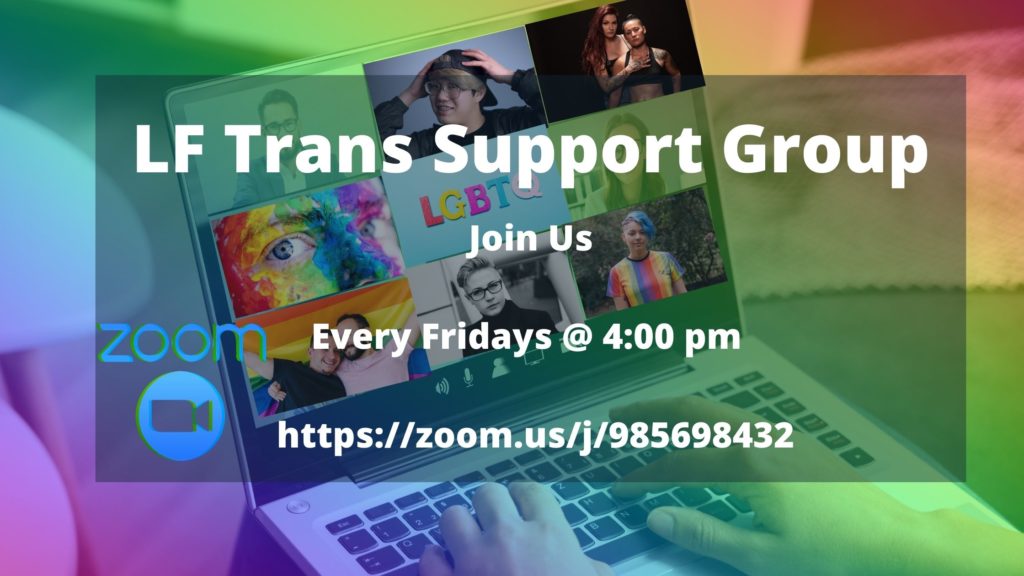4 Reasons Gender Pronouns Matter More Than You Think
(#3 Will Surprise You)
Have you ever introduced yourself to someone, mentioned your name a few times throughout the conversation, and still the other person signs off “Bye John” instead of “Bye Joe”? Ouch. Having a pleasant conversation, only to realize the other person has completely forgotten your name hurts. Our names are the simplest way we present ourselves to the world. So when someone repeatedly forgets your name or calls you by the wrong name, it feels like either they don’t respect you enough to listen or they don’t care enough to remember. For most of us, this doesn’t happen very often. But for people who are transgender, genderqueer or gender non-binary, being misidentified can happen daily. Imagine feeling ignored, disrespected and invalidated every single day. It would be unbearable. But that’s exactly how non-binary people feel when someone uses incorrect gender pronouns. Next to our names, our gender pronouns are the most fundamental part of our identity. As such, they must be used correctly and respectfully.
What Are Gender Pronouns?
Pronouns are words that replace nouns. They refer to a noun that’s already been mentioned or to a noun that doesn’t need to be mentioned specifically.In the English language, pronouns are almost always gendered. ‘He’ refers to men, while ‘she’ refers to women. Many people, especially those whose gender identity conforms to their birth sex, don’t think twice about their pronouns. But for people outside of the gender binary, pronouns are an essential part of their identity. This group is diverse and includes people whose biological sex doesn’t align with their gender identity, people who identify as something other than male or female or people who feel like their gender is a combination of genders. In response to this, many people have adopted non-binary pronouns to describe themselves. The most common are ‘they, them, theirs’ but there are other options. 
Some Definitions to Know
To better understand why gender pronouns matter, it’s important to understand some terms first. Biological Sex (or Sex Assigned at Birth) – The classification of people based on a combination of their anatomy, hormones and chromosomes. Examples include male, female and intersex. Gender Identity – A person’s internal sense of being a man, a woman, both, neither of these or another gender(s). Often biological sex and gender are conflated, but they aren’t the same thing. Examples include man, woman, trans man or trans woman, non-binary or genderqueer. Cisgender – A person whose gender identity corresponds with their biological sex.Transgender – Individuals whose gender identity doesn’t correspond with their birth sex.Gender Expression – The physical expression of a person’s gender identity through clothing, hairstyle, voice and body shape. These markers vary widely by country, culture and ethnicity. Examples include masculine, feminine or androgynous. Non-Binary Gender– The umbrella term to describe gender identities other than strictly male or female. There are many types of non-binary gender, but some of the most common are:
- Genderqueer – A catch-all term for individuals with non-binary gender identities.
- Agender –Not having a specific gender identity or having a gender identity that is neutral.
- Genderfluid – Moving between two or more gender identities or expressions.
Misgender – To refer to someone using a pronoun or form of address that doesn’t reflect the gender they identify with. 
4 Reasons Pronouns Matter
1. Pronouns = Respect
Asking someone’s pronouns is about respecting their gender identity. Taking the time to learn and use someone’s pronouns is a small gesture that goes a long way in making them feel valued and seen.Using incorrect pronouns, whether intentionally or unintentionally, invalidates a person’s gender identity and puts an emotional strain on them. Helpful Tip: It’s okay to make mistakes! If you use the wrong gender pronoun, apologize, but more importantly, correct yourself and move on. Dwelling on the mistake is worse than the mistake itself.
2. Using Pronouns is a Form of Allyship
All LGBTQ allies should share their pronouns. Sharing pronouns gives transgender and non-binary people the freedom to share theirs. Small acts like this give them the confidence to share their full selves with the world, knowing they have support behind them. Plus, once you know someone’s pronouns, you can correct friends, family or strangers if they use the wrong pronouns. Besides affirming someone’s gender identity, sharing pronouns also let’s non-binary people know they’re in a safe space. Helpful Tip: Allyship is possible even when working from home. Edit your email signature and Zoom display name to include your pronouns and encourage your colleagues to do the same.
3. Using Incorrect Pronouns Can Create a Safety Risk
In most cases, using incorrect pronouns means that someone feels invalidated or disrespected. Often these are microaggressions that, while painful, don’t pose an immediate health or safety risk.In some cases, however, misgendering someone or using the wrong pronouns can lead to more severe consequences. For example, misgendering a trans person could ‘out’ them. Not only is outing someone a violation of their privacy, but it could also lead to harassment, discrimination or violence from friends, colleagues or society at large.Helpful Tip: Even if someone looks cisgender or presents as a man or woman, don’t assume their pronouns. Always ask.
4. Pronouns Change How We See The World
Many people, even those who identify as cisgender, have moments where they don’t feel like they fit into the binary mold. Maybe it’s a woman who hates dresses or a man who enjoys getting manicures. These examples are a bit silly, but they illustrate how often things are associated with one sex or the other. In reality, these ideas are just societal constructions that have nothing to do with living a happy, productive life.Sharing pronouns is a great way to challenge assumptions about what people should look like, act and enjoy. It also challenges the very need for these limiting distinctions in the first place. Helpful Tip: Some genderqueer and gender fluid people change the pronouns they use, so be sure to confirm their pronouns if you haven’t seen them in a while.
Pronouns Matter at La Fuente Hollywood Treatment Center
La Fuente Hollywood Treatment Center is one of the nation’s leading LGBTQ treatment centers so we know how important your pronouns are. We promise to use and honor them whenever we can.But our commitment to providing top-notch addiction treatment to members of the LGBTQ community goes beyond using your pronouns. We advocate for and validate all the needs and experiences of our sexual- and gender-diverse clients. So if you or someone you love is suffering from drug or alcohol addiction, then contact us and let’s start your journey to recovery today.
LF Trans Support Group
Time: Fridays @ 4:00 pm
Hosts: LF@lafuentehollywood.com, Vivian@lafuentehollywood.com
Join: https://zoom.us/j/985698432
Begin your journey of recovery now by filling out the form below. Our caring treatment coordinators will work with you to make sure you have the lowest out of pocket costs when seeking treatment.
 [contact-form-7 id=”14454″ title=”Treatment Contact Form”]
[contact-form-7 id=”14454″ title=”Treatment Contact Form”]





